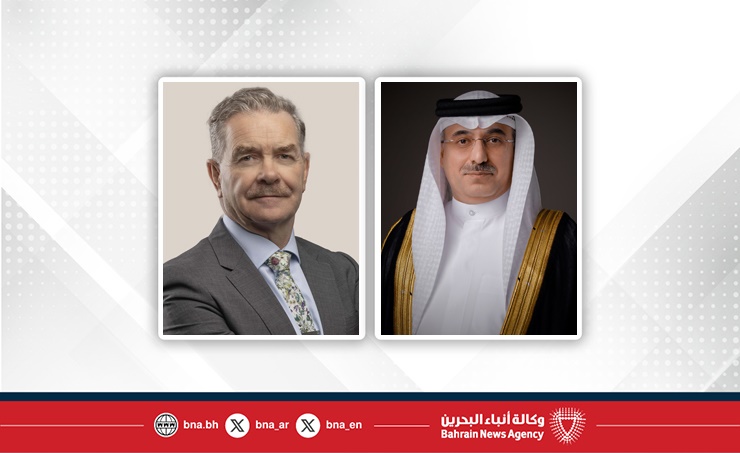Manama, July 21 (BNA): Bahrain University of Technology, in close collaboration and with technical assistance from the National Space Science Authority (NSSA), has presented a space payload proposal in the second edition of the Payload Hosting Initiative (PHI).
The effort is a collaboration between the United Nations Office for Outer Space Affairs (UNOOSA) and the Mohammed Bin Rashid Space Centre (MBRSC) in the United Arab Emirates.
Bahrain University of Technology is the Kingdom’s first higher education institution to contribute to UNOOSA’s efforts on space science and technology. NSSA provided comprehensive technical support to Bahrain University of Technology’s participation, based on a memorandum of understanding signed between the two parties. NSSA engineers and experts worked alongside a group of academic staff from Bahrain University of Technology and a select group of outstanding students from various disciplines.
PHI aims to design payloads that comply with scientific and technical requirements while providing diverse solutions that serve multiple sectors, contributing to the achievement of the Sustainable Development Goals, particularly in the areas of innovation, quality education, space security and justice, international cooperation, gender equality and youth empowerment. Bahrain University of Technology’s proposal aims to develop an innovative space payload to detect and monitor the health of agricultural crops in the Kingdom of Bahrain and the GCC region, leveraging artificial intelligence and remote sensing technologies.
NSSA CEO Dr. Mohammed Ebrahim Al Asiri praised the efforts of all those involved in the proposal submission, including NSSA staff, faculty and students at Bahrain University of Technology, with the aim of achieving further results to position Bahrain as a leading nation in the space sector.
“I am proud of this collaboration and am convinced that this will be the start of even greater and more impactful achievements at the scientific, technological and research levels.”
Dr. Al Asiri stressed that NSSA is keen to collaborate with higher education institutions, adding that by launching such initiatives, NSSA aims to achieve several strategic goals, including raising society’s awareness of the importance of space, its science and applications, especially among academic staff, researchers and students at higher education institutions. Additionally, it aims to build national capacity and promote space science at the national level, enhancing innovation and development in line with Bahrain’s Economic Vision 2030.
Meanwhile, Professor Ciaran O Kassain, CEO of Bahrain University of Technology, said the university was honoured to be the first higher education institution in Bahrain to join the Payload Hosting Initiative.
“This opportunity further enhances the achievements of the University of Technology and demonstrates our capabilities and expertise in achieving our shared goal with NSSA of supporting and developing scientific research, opening up new and broader perspectives for our students by providing training opportunities with experts and specialists. This will support the development of space science, encourage creativity, innovation and scientific research, contribute to making a positive and effective contribution to research in space technology, and make Bahrain University of Technology a university that truly contributes to building a sustainable economy based on innovation, creativity and excellence,” added Prof. O Khassain.
Engineer Yaacob Al Kassab, who helped prepare the proposal, said: “When Bahrain University of Technology joined this initiative, the NSSA held an introductory workshop for all higher education institutions where they explained PHI and provided details on how to get involved and apply.”
NSSA stated its readiness to provide full technical and knowledge support to participating higher education institutions. The Polytechnic’s proposal outlines Bahrain’s design for an innovative payload that will utilize artificial intelligence technology to rapidly analyze satellite imagery onboard the satellite itself. This will enable relevant authorities and decision-makers to assess the current status of agricultural crops in the Kingdom of Bahrain and the GCC region, facilitating rapid action to minimize damage and develop sustainable strategies to prevent agricultural pests and mitigate crop losses.
PHI-2 is a cooperation programme under the Access to Space for All initiative overseen by MBRSC in collaboration with UNOOSA, which aims to promote technological development and cooperation in the peaceful uses of space and advance human resource development in line with the mission and objectives of the Access to Space for All initiative.
HF

